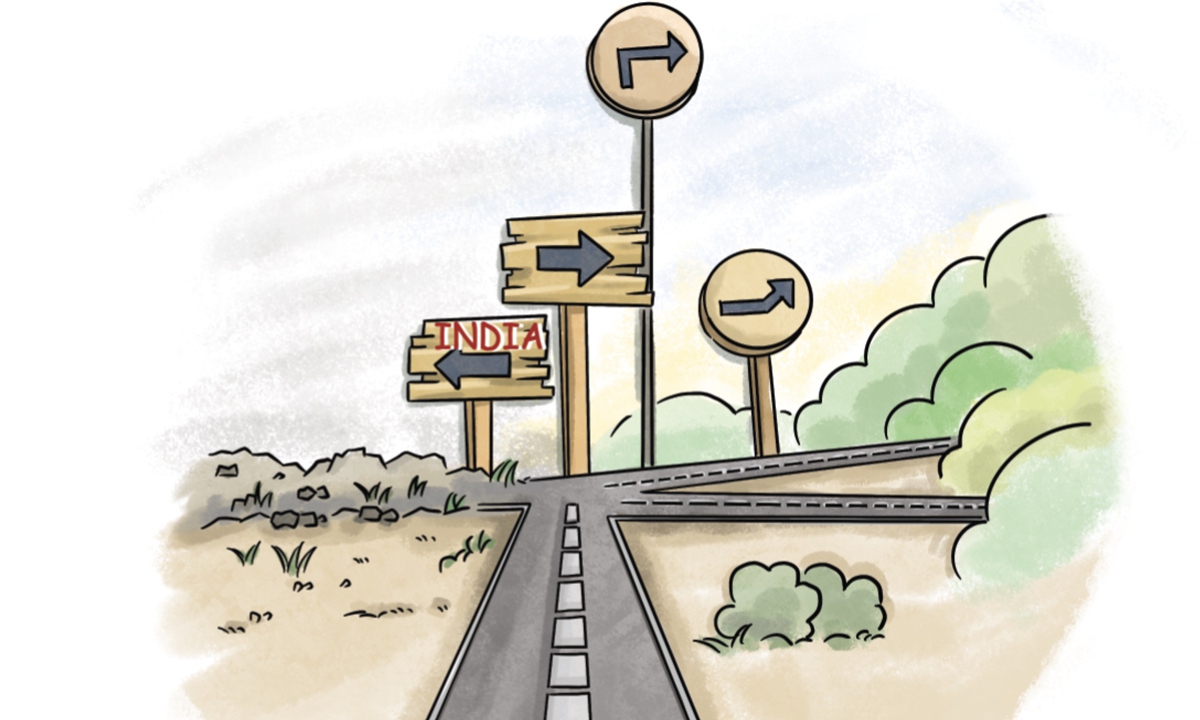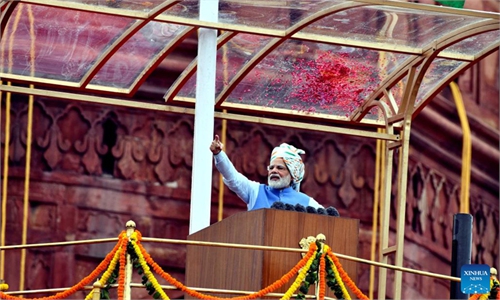
Illustration: Xia Qing/GT
As India celebrated the 75th anniversary of its independence from British rule on Monday, the country's economic development has attracted much attention. As the world's sixth-largest economy, India is expected to grow by more than 7 percent this year, the fastest rate among major economies.Yet, in stark contrast to the seemingly promising economic outlook, foreign companies, including those from China, have been facing growing difficulties in the Indian market due to an opaque regulatory system and growing protectionism. Chinese smartphone brand Honor pulled its team out of India in late July, and many other Chinese companies are also considering whether to withdraw investment from India amid the tightened government scrutiny of Chinese companies, according to Chinese media reports.
Chinese companies are not alone. Many Western multinationals have also either opted out of India or scaled back their investment in the Indian market. US firms such as Ford Motors, General Motors and Harley-Davidson have successively ended production in India in recent years.
To a certain extent, foreign companies' apparent disappointment with the Indian market underscores the failure of India's economic reforms over the past 75 years, which failed to result in any substantial change in the country's business environment. With the limited progress over the past 75 years, will 100 years make any major difference?
Since the early 1990s, India has been undergoing various reforms, including what the Modi government has been pushing forward with in recent years when it comes to economic, taxation, labor, and land policies. The reforms once reignited market confidence as to India's growth and market momentum. Many believe that with the massive market, a growing middle class, cheaper labor, and robust economic growth, India has the potential to become the next global factory after China.
Yet, most of the reforms haven't delivered an impressive boost to the Indian economy. Many Indian media outlets used to forecast that a large amount of manufacturing capacity would flow from China to India, because only India can absorb such a large amount of manufacturing demand. But it turned out that Vietnam, not India, has become a hot destination of foreign manufacturing investment, with its trade surplus hitting record highs from time to time. By comparison, India's trade deficit has been on the rise, which is clearly not the performance of a manufacturing power.
So why does it seem that 75 years on, India, which clearly has great potentials, still has a long way to go to become a manufacturing powerhouse?
There are many possible explanations, such as insufficient efforts targeting the elimination of poverty in rural areas, relatively low education levels among the poor, in addition to a protectionist inclination. And an important reason is that India has not found the right strategy for its own economic development. Even the Modi government that is committed to economic reforms and openness has seen its policies gradually leaning toward protectionism. India's efforts to crack down on Chinese imports and companies may be protective for domestic industries in the short term, but in the long run, they will undermine India's ability to achieve its economic ambition and hurt confidence of foreign investors.
The reason why many manufacturers have opted for Vietnam over India is because Vietnam has been integrated into the regional industrial chain, and manufacturers can take advantage of its lower labor costs with no need to worry about supply chain bottlenecks.
So what India really needs is transformation and market openness if it is to become a manufacturing power. Of course, any transformation and market openness effort needs to start from a governance level, which will be a test for India's political leaders, who, as of late, appear to be focusing more on geopolitics rather than development that India really needs.
During a speech on Monday, Modi pledged to make India a developed country in the next 25 years. That's a very ambitious promise. It's not that we don't believe India has the potential to do so, but that we believe India cannot achieve that by forcing out foreign investments, including those from China, out of geopolitical considerations and protectionist mindset.



